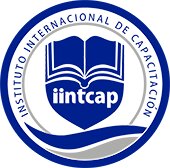Best ESG Advisory & Compliance Lawyers in Dominican Republic
Share your needs with us, get contacted by law firms.
Free. Takes 2 min.
Or refine your search by selecting a city:
List of the best lawyers in Dominican Republic
About ESG Advisory & Compliance Law in Dominican Republic
Environmental, Social, and Governance (ESG) advisory and compliance refers to the set of legal, regulatory, and ethical requirements and guidelines that organizations must follow in relation to their impact on the environment, social responsibility, and corporate governance. In the Dominican Republic, ESG advisory and compliance is an emerging area as more companies, investors, and regulatory bodies prioritize sustainability and responsible business practices. These efforts align with both international best practices and evolving local regulations, aiming to create value for businesses as well as for the broader community and environment.
Why You May Need a Lawyer
Seeking legal advice in ESG advisory and compliance can help you navigate the increasing complexities of regulations and stakeholder expectations. Common situations where a lawyer’s help is crucial include:
- Understanding new or proposed ESG regulations that impact your business operations
- Ensuring compliance with environmental laws, such as waste management, emissions, and resource usage
- Preparing ESG disclosures and reports for regulators or investors
- Incorporating ESG requirements into contracts and supply chain management
- Addressing labor, health, and safety laws as they relate to worker welfare and human rights
- Assisting with ethical corporate governance, anti-corruption, and transparency measures
- Responding to government or third-party audits and investigations
- Mitigating risks and developing ESG policies or codes of conduct
- Navigating mergers, acquisitions, or investments from an ESG compliance perspective
- Managing stakeholder communications and potential legal disputes concerning ESG issues
Local Laws Overview
The Dominican Republic has a regulatory framework that touches on various aspects of ESG. Key environmental laws include the General Law on Environment and Natural Resources (Law 64-00), which sets out requirements for protecting the environment and ensuring sustainable development. Labor and human rights are addressed by the Dominican Labor Code, which enforces standards on worker rights, minimum wage, and safety. Anti-corruption and governance measures are regulated by laws such as Law 155-17 on Money Laundering and Law 311-14 on Affidavits of Assets for public officials, which promote transparency and ethical conduct.
While there is no single, consolidated ESG law in the country, compliance is also shaped by international agreements, trade deals, and commitments to multilateral organizations. Companies doing business in the Dominican Republic are expected to follow local legal standards and, often, international ESG frameworks when operating or reporting within the country.
Frequently Asked Questions
What is ESG compliance and why is it important in the Dominican Republic?
ESG compliance involves aligning business practices with environmental, social, and governance standards. It is important because it helps organizations avoid legal risks, improve reputation, attract investment, and operate sustainably in line with Dominican regulations and global expectations.
Are there specific ESG regulations in the Dominican Republic?
While there is no single ESG regulation, multiple laws address environmental protection, labor standards, anti-corruption, and corporate governance. Businesses should consider all applicable local and international rules relevant to their operations.
Do companies have to submit ESG reports to Dominican authorities?
Some sectors require environmental impact assessments or compliance reports, particularly in industries such as mining, tourism, and manufacturing. Increasingly, private and foreign investors may require ESG disclosures, even if not mandated by law.
What are the main environmental laws affecting companies?
The primary regulation is Law 64-00, which governs environmental protection, including waste management, emissions, and use of natural resources. Compliance with this law is essential for businesses in most industries.
How are social factors regulated?
Social factors are mainly governed by the Dominican Labor Code, as well as by specific health, safety, and anti-discrimination laws. These laws set standards for worker rights, workplace safety, and equal treatment.
What governance standards should companies be aware of?
Corporate governance in the Dominican Republic is guided by transparency, anti-corruption laws, and rules established by regulatory bodies such as the Superintendence of Securities (SIV). International governance principles may also be relevant, especially for publicly listed or multinational companies.
Are penalties imposed for ESG non-compliance?
Yes, non-compliance can lead to administrative sanctions, fines, suspension of business licenses, or legal actions. Penalties depend on the nature and severity of the violation and can include both civil and criminal consequences.
How can a lawyer assist with ESG matters?
A lawyer can help interpret and apply local and international ESG standards, draft compliance policies, manage disclosures, represent the company in disputes, and ensure that all business activities meet legal and ethical requirements.
What are the challenges of implementing ESG in the Dominican Republic?
Challenges include complex and evolving regulations, lack of standardization in reporting, gaps in enforcement, and balancing local requirements with international ESG frameworks. Legal guidance ensures proper navigation of these challenges.
How can small or medium businesses comply with ESG standards?
Even smaller businesses should strive to create internal policies on environmental impact, worker welfare, and governance. Consulting a lawyer or ESG advisor is key to identifying relevant obligations and setting realistic, effective compliance goals.
Additional Resources
Several organizations and government bodies provide guidance or regulatory oversight related to ESG in the Dominican Republic:
- Ministry of Environment and Natural Resources (Ministerio de Medio Ambiente y Recursos Naturales)
- Ministry of Labor (Ministerio de Trabajo)
- Superintendence of Securities (Superintendencia del Mercado de Valores - SIV)
- Center for Exports and Investment of the Dominican Republic (Centro de Exportación e Inversión de la República Dominicana - CEI-RD)
- National Council of Private Enterprise (Consejo Nacional de la Empresa Privada - CONEP)
- Chamber of Commerce and Production of the Dominican Republic
- Professional legal associations and ESG advisory firms
Next Steps
If you require legal assistance with ESG advisory and compliance in the Dominican Republic, consider taking the following steps:
- Assess your company’s current ESG obligations and identify gaps or areas of concern
- Consult with a qualified lawyer specializing in ESG, environmental, labor, or corporate law
- Gather all relevant documentation, such as permits, licenses, reports, and policies
- Develop or update ESG policies and internal procedures
- Stay informed about new laws or regulations that may affect your sector
- Engage with industry associations or local business chambers for shared knowledge and best practices
- Regularly review compliance processes with the guidance of your legal counsel
Early legal guidance is crucial to avoid costly mistakes and ensure your organization operates responsibly and in full compliance with ESG standards in the Dominican Republic.
Lawzana helps you find the best lawyers and law firms in Dominican Republic through a curated and pre-screened list of qualified legal professionals. Our platform offers rankings and detailed profiles of attorneys and law firms, allowing you to compare based on practice areas, including ESG Advisory & Compliance, experience, and client feedback.
Each profile includes a description of the firm's areas of practice, client reviews, team members and partners, year of establishment, spoken languages, office locations, contact information, social media presence, and any published articles or resources. Most firms on our platform speak English and are experienced in both local and international legal matters.
Get a quote from top-rated law firms in Dominican Republic — quickly, securely, and without unnecessary hassle.
Disclaimer:
The information provided on this page is for general informational purposes only and does not constitute legal advice. While we strive to ensure the accuracy and relevance of the content, legal information may change over time, and interpretations of the law can vary. You should always consult with a qualified legal professional for advice specific to your situation.
We disclaim all liability for actions taken or not taken based on the content of this page. If you believe any information is incorrect or outdated, please contact us, and we will review and update it where appropriate.
Browse esg advisory & compliance law firms by city in Dominican Republic
Refine your search by selecting a city.














